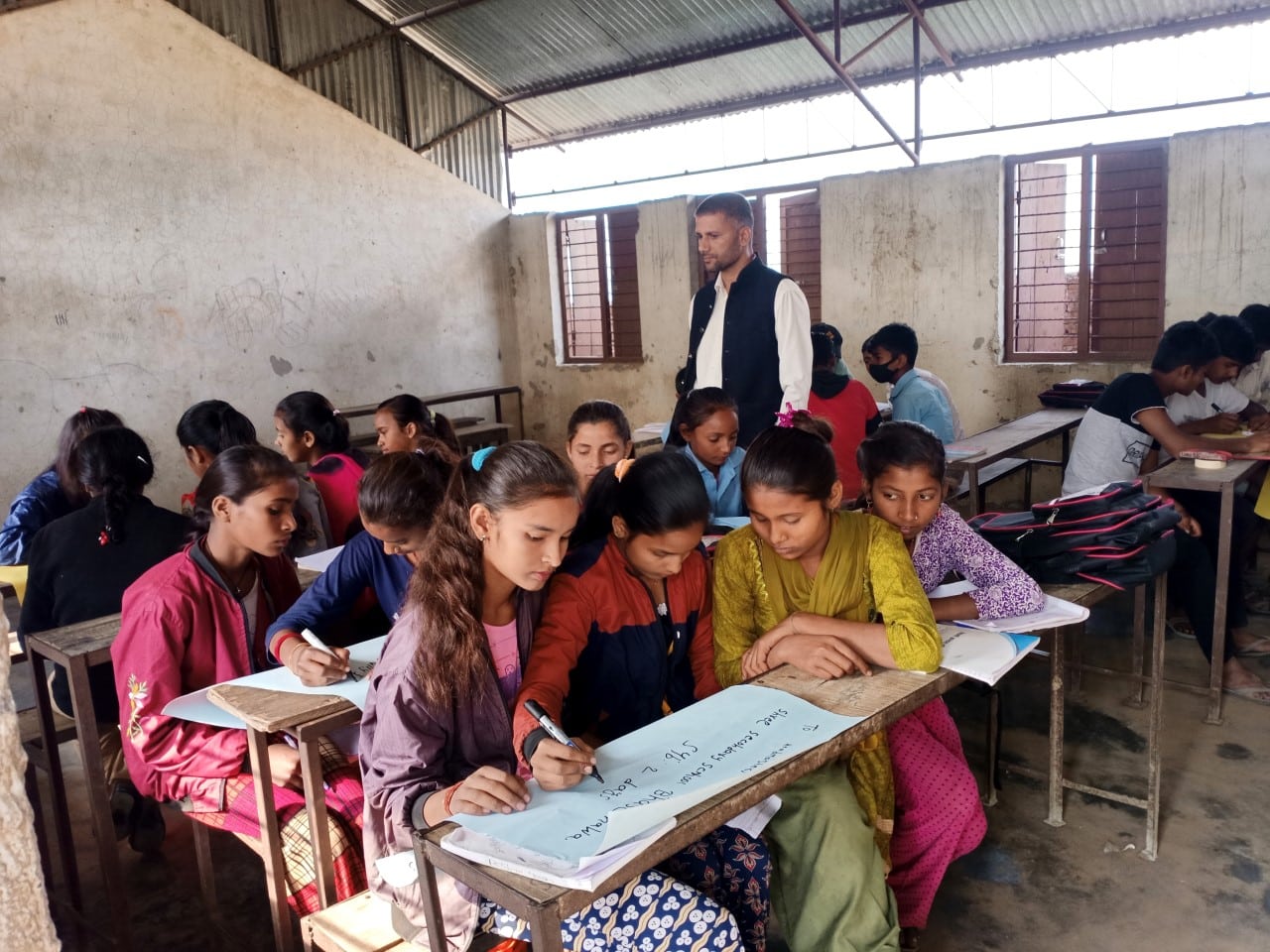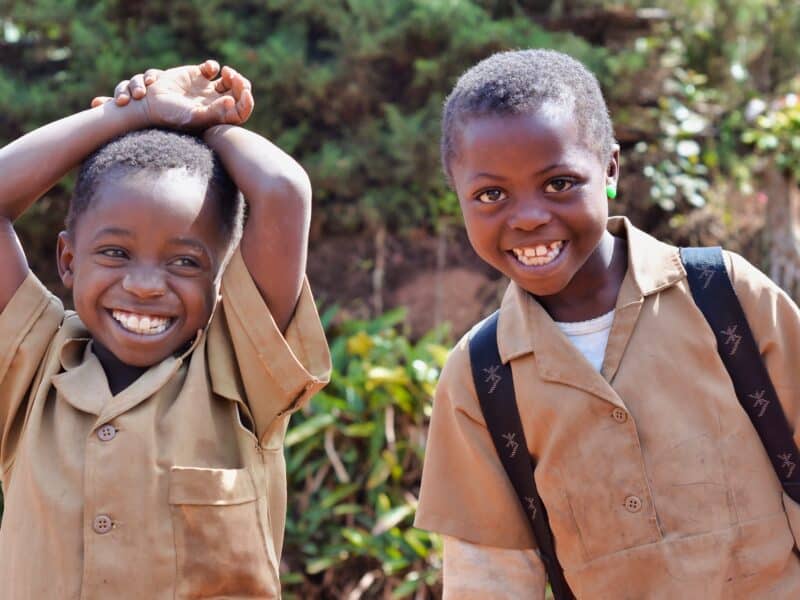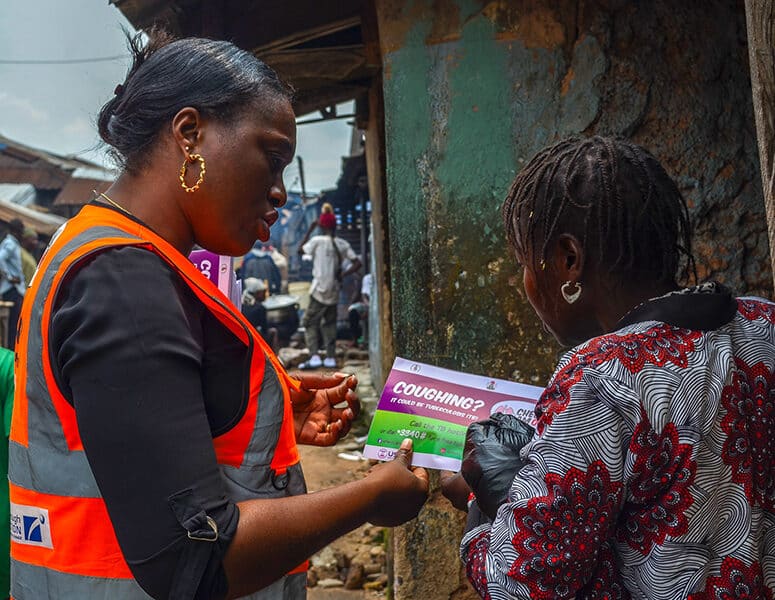Early-morning remedial classes for Nepali middle school students struggling with their academics because of the learning loss from COVID-19-related school closures, substantially increased academic test scores in four months by an average of 30 percentage points.
The classes are but one part of a broad effort in Madhesh province to keep young Nepali students – notably girls – from dropping out of school permanently and increasing their risk for child, early and forced marriage. The program focused on underperforming students from grades six, seven, and eight who were deemed likely to drop out of school in the near future. Schools in Nepal were closed during much of 2020 and parts of 2021 due to COVID-19 lockdowns, which caused many students to fall behind.
The USAID-supported program was headed by Breakthrough ACTION’s Reducing Early, Child and Forced Marriage (R-CEFM) project. The Johns Hopkins Center for Communication Programs, Save the Children International, and two local partners, Aasman Nepal and Ratauli Yuwa Club, collaborated to design, implement and monitor the effort. External agencies evaluated the project.
According to UNICEF, up to 10 million more girls across the globe are at risk of becoming child brides as a result of the pandemic.
“We know that dropping out of school to get married can impact a girl’s entire future,” says CCP’s Shreejana KC, who helped lead the work. “And some parents were desperate to marry off their girls due to added economic stressors created by the COVID-19 lockdowns. This program lets girls and boys catch up academically while communicating with their parents on why early child marriage – which is illegal in Nepal but has been a longtime cultural norm – is a harmful path.”
A 2019 study found that 38.4 percent of women in Nepal between the ages of 20-49 reported they were married before the age of 18.
Evidence has shown that girls under 18 are not ready to become wives and mothers and are more susceptible to domestic violence. Child marriages increase the risk of early pregnancy which can lead to complications during pregnancy and childbirth, and maternal mortality. Girls who marry early often miss out on life skills to become economically productive adults.
Through the remedial education program, roughly 7,800 students from 83 Nepali schools in two districts of Madhesh took informal two-hour classes, six days a week in subjects such as Nepali, English, math and science. The program trained more than 350 experienced teachers to provide the lessons. It provided on-site coaching and mentoring support to teachers, a key to the program’s success.
“Remedial activities were very effective in improving our learning outcomes,” one girl said. “We did not even know how to read or write before. But now we can. We used to be scared to talk to our teachers, but now we can ask questions without hesitation.”
Students also received counseling and life skills sessions to build career goals and to understand such concepts as menstrual hygiene. Before the lessons, girls often didn’t come to school during their periods. Parenting sessions, where parents were educated on the benefits of allowing their daughters to continue their education, were also conducted.
“These [parent] sessions were very helpful to motivate our parents to send us to school and to give us more time to study rather than only doing the household chores,” said one girl who attended the classes.
Average student scores on assessments before the program were 19.8 out of 100. At the end, they were nearly 51 percent. The average improvement for the girls was slightly larger than that of the boys.
“Engaging both parents and children in the remedial education and parenting sessions helped create a conducive, safe learning environment at home critical for the success of the remedial education program,” says Save the Children’s Laxmi Paudel, an education advisor. “As a result, we saw the increased interest, motivation and self-confidence in school, increased importance placed on education, and improved attitudes, awareness, and knowledge related to preventing child marriage.”
As the children in the program are still in grades six, seven and eight, it is unknown whether better education will translate into fewer child marriages.
The lessons from this remedial classes approach will be used in the nationwide COVID-19 learning loss recovery program being spearheaded by Ministry of Education, Science and Technology officials, in collaboration with provinces and municipalities across Nepal.
“We are preparing a national learning accelerated and recovery plan. The learning from this intervention will contribute to the plan which is being prepared and finalized,” said Hari Lamsal, the joint secretary of the ministry. “After seeing the results, I find these interventions useful with the main goal of improving children’s performance. These learning should be shared widely by the province and with the municipalities. If this can be in-built in the system, it will scale up.”
Learn more about the program and results in the full reports here.





